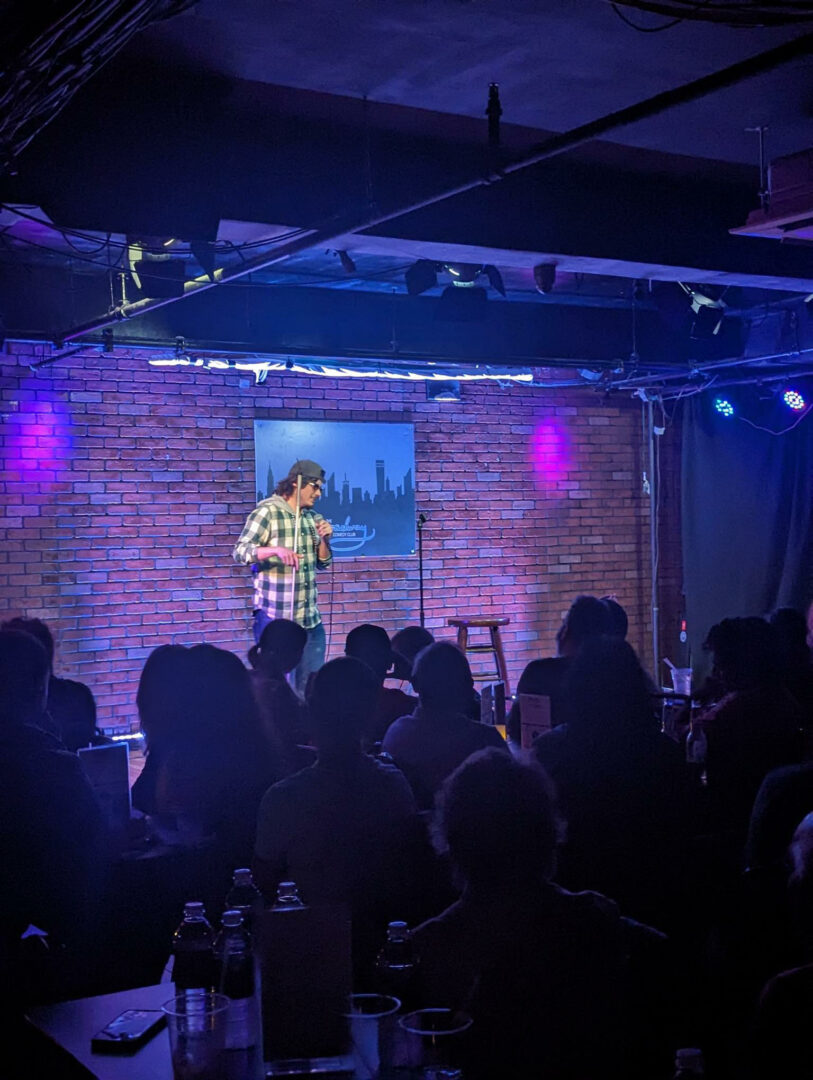We recently connected with Noah Brockett and have shared our conversation below.
Noah, thank you so much for taking the time to share your lessons learned with us and we’re sure your wisdom will help many. So, one question that comes up often and that we’re hoping you can shed some light on is keeping creativity alive over long stretches – how do you keep your creativity alive?
As a comedian it’s very important to constantly be pushing yourself in new creative ways. a place of advice that a comedian gave me was ABW, or always be writing. Carry a notebook and pen with you everywhere I go, I use a voice recorder because I can’t see, and write down anything that you find funny.
It could be a random thought that you had, or something that you saw, something that you overheard, something that somebody else said to you, basically anything as long as you find it funny. When you’re riding in the notebook or recording with your voice recorder. it’s best not to be too judgmental with the ideas that you’re putting down. Don’t be an editor at this stage, be a clown. rant, rave, and go down tangents. Don’t worry about creating a masterpiece of comedy at this stage because everything that shows up in the notebook or in the voice recorder has the potential to become a first draft.

Thanks, so before we move on maybe you can share a bit more about yourself?
I am a stand-up comedian that just so happens to be blind. Of course, as you can imagine being blind has its challenges. Sometimes I feel like a human bumper car When I walk down the sidewalk, Sometimes I’ll hand the barista a 20 when I meant to give her a five, and dating… well in the words of Joe Pesci “ forget about it”. But comedy allows me to take these things that some may call weaknesses and turn them into strengths.
For me, and a lot of other comedians, comedy is more than just a blossoming dream career, it’s a therapy and an outlet. most of my material revolves around the struggles I have with my blindness and how I overcome those struggles. I love joking about the stupid questions that people ask me, and I love weaving some educational material into my jokes. Have you ever wondered how blind people enjoy movies? or get from point A to point B? or use our phones? or even use the bathroom? Well, maybe that last one isn’t something that you should be thinking about. Regardless it’s something that I get to talk about in my comedy that other comedians can’t. Ironically my lack of vision gives me a new unique perspective to talk about.
I’m relatively new to Comedy but I’m amazed at where it’s taken me. I’ve done shows in New York, New jersey, Pennsylvania, Virginia, South Carolina, Maryland, New Hampshire, Louisiana, and Tokyo… yes tokyo.
and at the time of writing this I’m preparing for shows in New Orleans and Mexico.
Listening forward to hearing where the Lord takes me with my comedy career!
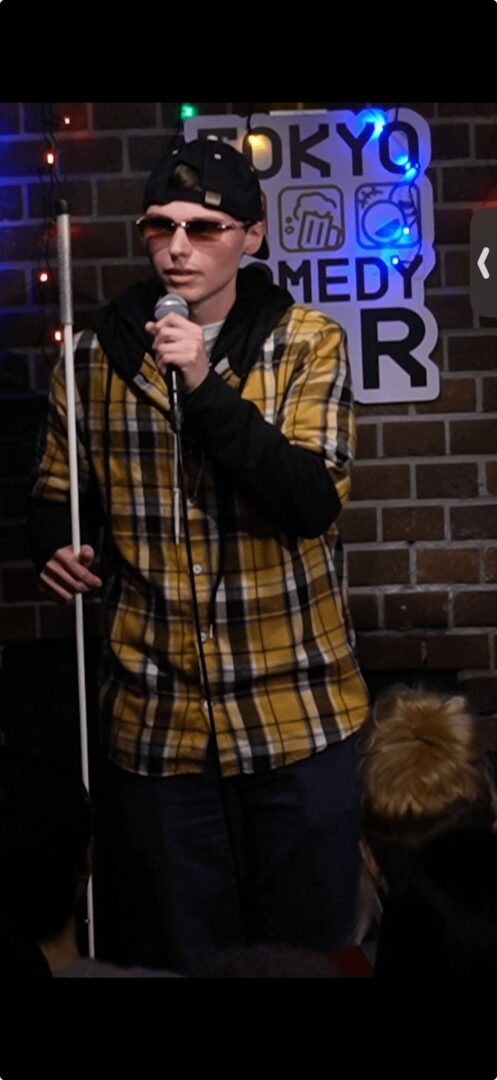
If you had to pick three qualities that are most important to develop, which three would you say matter most?
The top three areas for any beginner comedian are:
Writing (comedy writing)
Performing
social networking.
At the beginning stages of your comedy joke about anything and everything you can. don’t stick to just one subject. experiment and see which ones work for you. If it’s available I recommend taking a comedy class or reading one of many great books about comedy writing such as mastering stand up by Stephen Rosenfield, or how to write funny by Scott diggers.
For performing, there’s nothing to do but to do it. Seriously though, for some people this is the hardest hurdle to overcome because being on stage can be very scary. Especially when the only thing your armed with is jokes that you don’t have a lot of confidence in because you wrote them yourself and you’re not sure if they’re funny yet or not. but do it anyway. and then do it again. and then keep on doing it and never stop. A great way for a beginner comedian to get on stage for the first time is by going to an open mic. These can be found at more than just comedy clubs but I found that comedy clubs tend to run the best ones. Go to as many open mics as you can at as many places as you can.
Social networking are also extremely important. you might have great jokes, and you might be able to perform them really well, but if you’re a jerk nobody’s going to book you for shows. Don’t be mean and don’t be a loof. be friendly. tell them your new if you are. if you’ve been doing comedy for a while don’t have an ego about it. And especially don’t have an ego about it if you haven’t been doing it for a while (I’ve made this mistake). Make friends and show up consistently. social networking is also very important because most of the time the first paying work that you’re going to get as a comedian will come from other comedians Who runs small showcase shows.
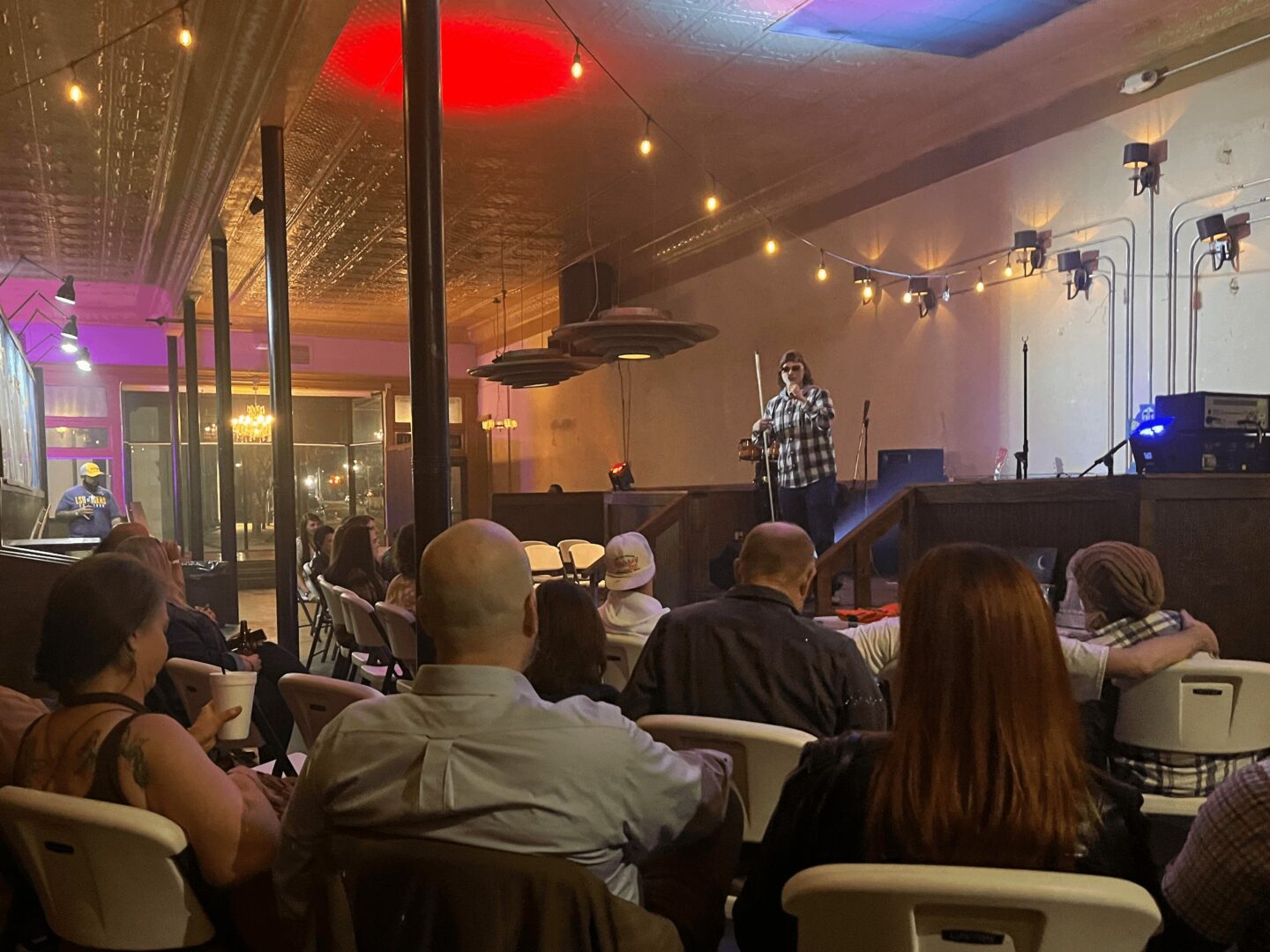
Thanks so much for sharing all these insights with us today. Before we go, is there a book that’s played in important role in your development?
Mastering Stand Up by Stephen Rosenfield is one of the best books out there for beginner stand-up comedians.
There are lots of others that I love such as the How To Write Funny Series by Scott Dickers and How To Fail At Stand Up Comedy by Steve Sabo, but mastering stand up has to be my favorite. I actually started reading it before I even got on stage, but it made me so nervous to do stand-up that I couldn’t continue reading it until I had bitten the bullet and done comedy for the first time.
Steven Rosenfeld does an excellent job of explaining the life cycle of a typical comedy career. the book is
thoroughly educating on the industry of Comedy in both the Realms of live stand-up performances and tv specials. He walks you through the beginning, middle end and comeback of a comedy career. The beginning of the book naturally is filled with basic but useful and very interesting information about comedy itself and the various writing styles and Performing styles of it such as observational comedy, anecdotal comedy, and sketch comedy.
There’s a chapter on how to write your first draft. there’s a chapter on how to edit your first draft after you’ve performed it for the first time. There’s a chapter on how to deal with hecklers. and on top of all of that the book Can be funny in and of itself.
Contact Info:
- Facebook: Noah Brockett
- Other: instagram and tiktok @noah_brockett
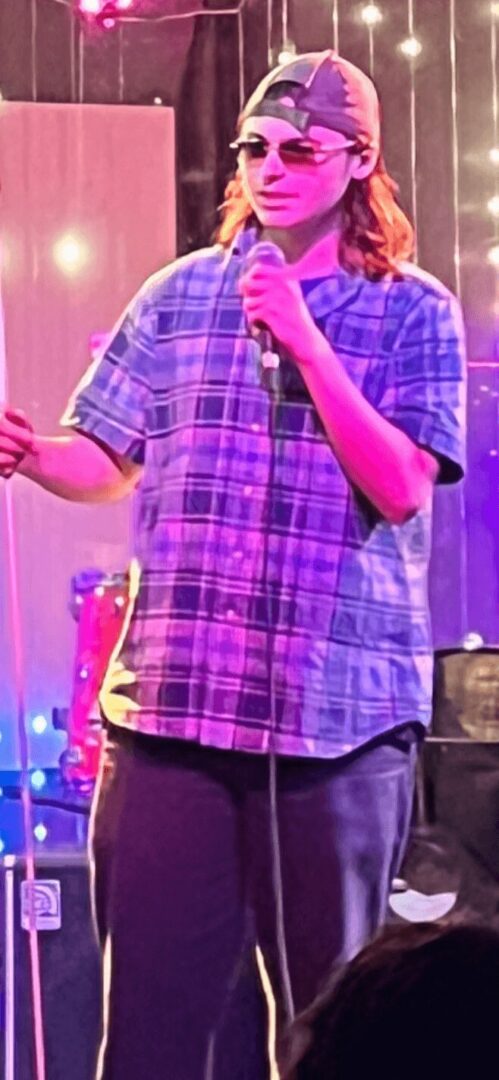
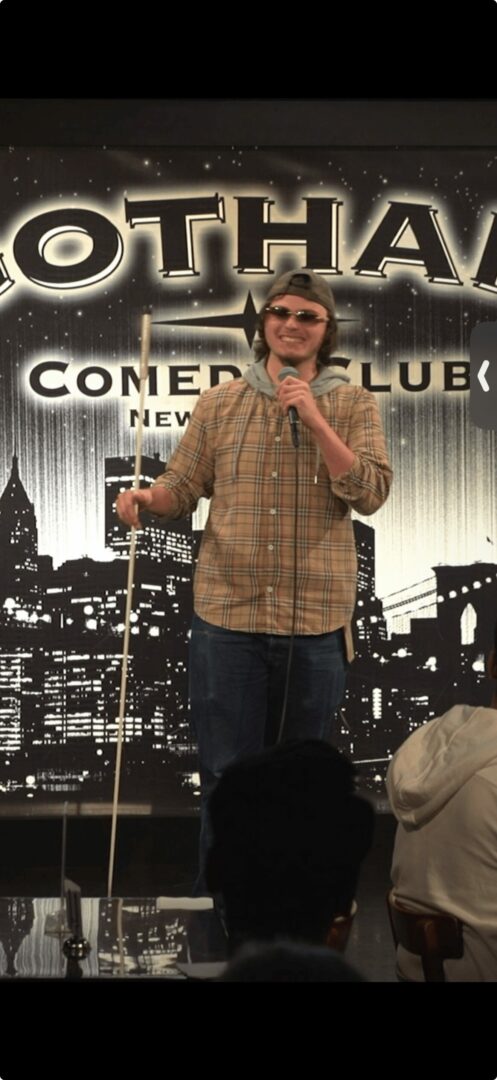
Image Credits
Joe Ferraro, Victoria Arnstein.
so if you or someone you know deserves recognition please let us know here.

